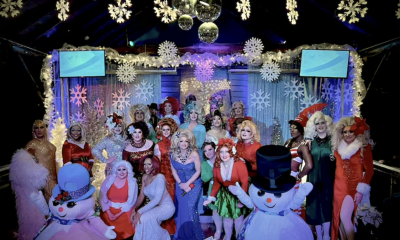Maryland
Gay, lesbian Md. General Assembly incumbents seek re-election
State’s primary is on July 19
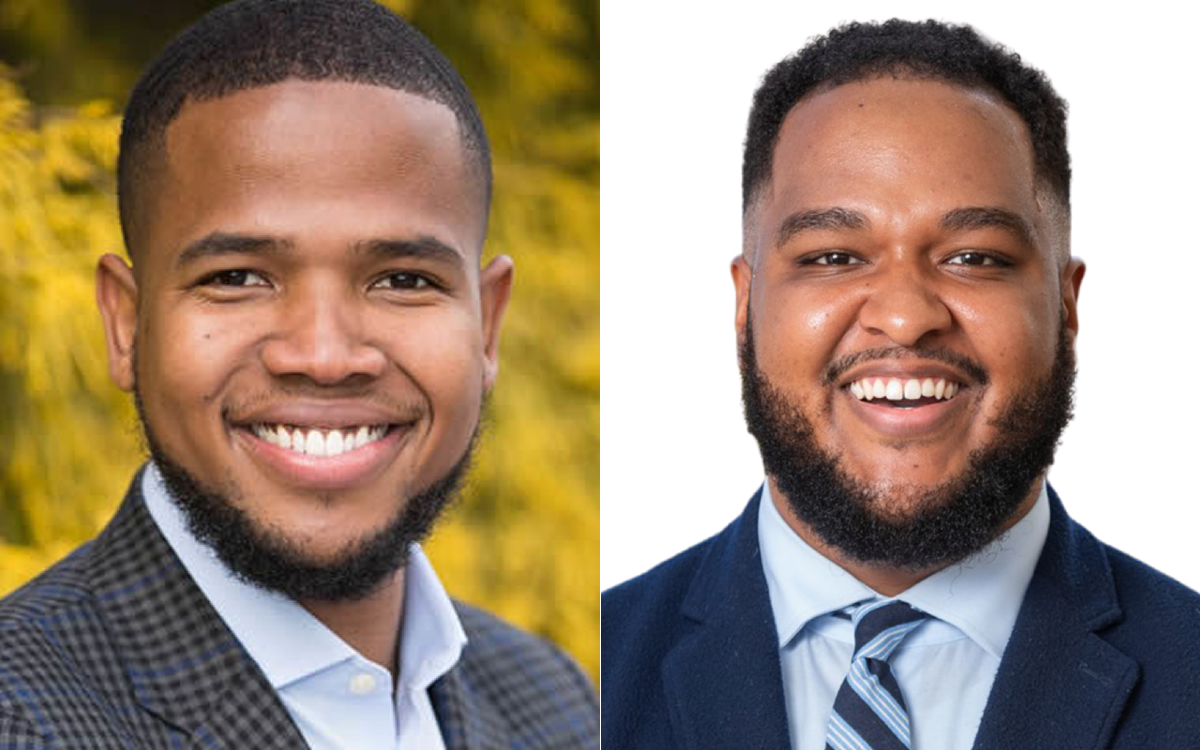
Six openly gay and lesbian Maryland General Assembly incumbents are on the July 19 ballot. Three other community members are also running for the Maryland House of Delegates.
Del. Gabriel Acevero (D-Montgomery County)
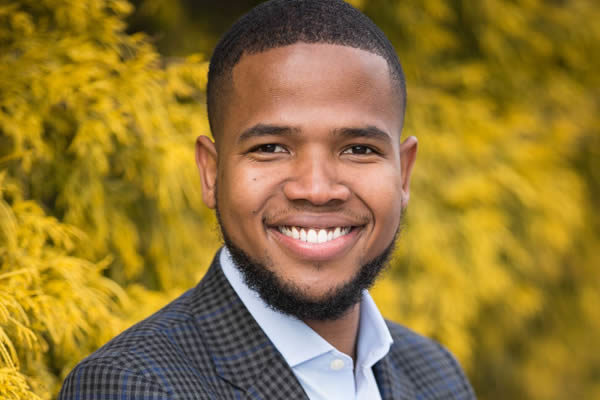
Representing Legislative District 39, Acevero was first elected to the Maryland House of Delegates in 2018 as the chamber’s first openly gay Afro-Latino member. Since his election, Acevero has established himself as a staunchly progressive voice in the General Assembly and has sponsored multiple efforts to ensure equality for the LGBTQ community, immigrants and other groups.
In a video posted to his official Facebook account, Acevero explained why he believed that, after the progress he and his supporters had been able to accomplish, running for re-election was necessary to continue the fight.
“But I also recognize that in order for us to build a more just and equitable and inclusive Maryland, there’s so much more work that we need to do,” Acevero said. “So, whether I’m in Annapolis or back here in District 39, I’ll continue to fight for our shared values and the issues that matter to you most.”
Del. Lisa Belcastro (D-Baltimore County)
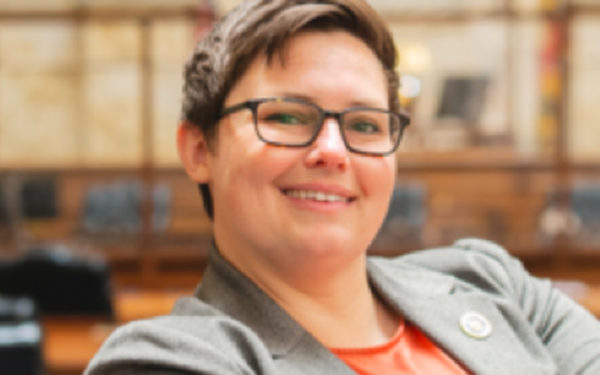
A former special education teacher, Belcastro represents Legislative District 11. She is a member of both the Health and Government Operations Committee and the Oversight Committee on Quality of Care in Nursing Homes and Assisted-Living Facilities.
After Gov. Larry Hogan appointed her to her seat in March 2020, Belcastro has engaged in efforts related to public education reform and LGBTQ rights, including sponsoring a bill to modernize birth and marriage certificates.
Seeking her first full term to the seat, Belcastro told the Washington Blade that her experience as an educator tied directly into her desire to seek re-election.
“I’m a teacher first and a legislator second,” Belcastro said. “I’m running to maintain my seat because we need voices in Annapolis that will put our students and schools first. It’s never been more important to fight for policies that create safe and welcoming schools that embrace the diversity of our human race.”
Del. Luke Clippinger (D-Baltimore City)
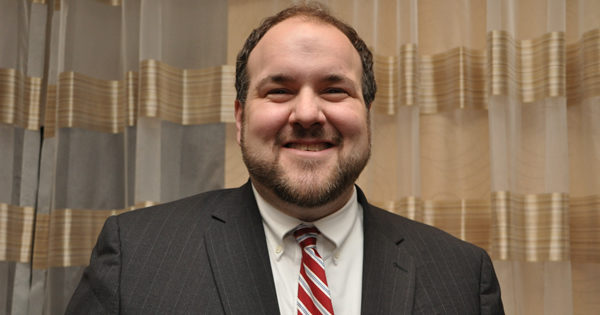
An assistant state’s attorney in Anne Arundel County, Clippinger has served in the House of Delegates since 2010. Representing Legislative District 46 in southeast and central Baltimore, he has held multiple leadership positions within the chamber’s Democratic coalition during his tenure.
The former chair of the House Democratic caucus and the current chair of the House Judiciary Committee has since championed causes like LGBTQ equality in the state, working to help pass its Marriage Equality Act and ban the use of the LGBTQ “panic” defense.
After filing for re-election, Clippinger wrote to his supporters on Facebook.
“It’s an honor and a privilege to represent District 46 in the Maryland General Assembly and, with your support, we’ll continue to do good for our neighbors and fight for our city,” Clippinger said.
“We’ve accomplished a great deal with regard to police reform and moving the ball forward on legalization of marijuana and reforming our juvenile justice system and I think there’s a lot more to do,” the Baltimore City Democrat told the Blade. “So, I look forward in another term to continuing work in all of those areas while at the same time being one of the members of the [LGBT] caucus in the General Assembly.”
Del. Bonnie Cullison (D-Montgomery County)
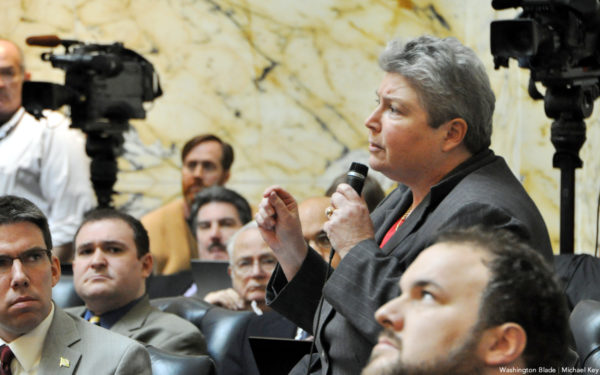
Cullison has represented Legislative District 19 in the House of Delegates since 2011. The Montgomery County Democrat, among other things, has championed efforts to ban so-called conversion therapy in Maryland, extend marriage rights to same-sex couples and ensure abortion rights are preserved in the state.
“I have been a member of the District 19 community for 20 years,” says Cullison on her website. “I am committed to providing opportunities for a good quality of life for everyone, not only here in Aspen Hill, but throughout the state.”
Kris Fair
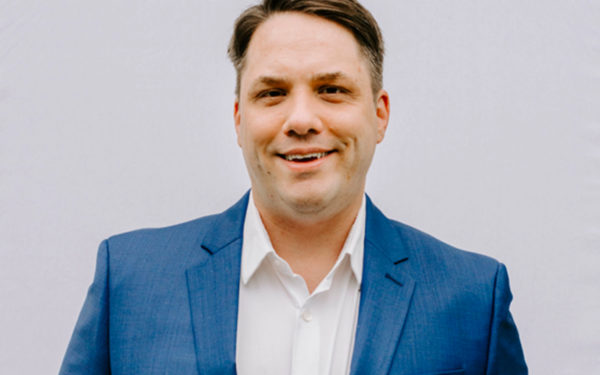
Fair is running to represent Legislative District 3 in the House of Delegates.
Fair is a lifelong Frederick County resident, and he currently serves as the executive director of the Frederick Center, an advocacy and support organization for LGBTQ people. Fair described his day-to-day responsibilities as “handling and providing support efforts for queer people everywhere,” which have contributed to his ambition to run for office.
Fair said that as a delegate and a former small-business owner in Frederick County, he hopes to correct “inequities and inefficiencies inside of our local government,” and make systems accessible for everyone — not just the well connected.
“If you’re not lucky enough to have connections, you will not be able to get the access or support that is needed to support your business, and for me, that was a huge red flag,” Fair said. “We need to make sure that our systems are accessible and functional for a vast majority of the population, not just those of us who know the way the system works. The system should be working with us and for us, not the other way around.”
Del. Anne Kaiser (D-Montgomery County)
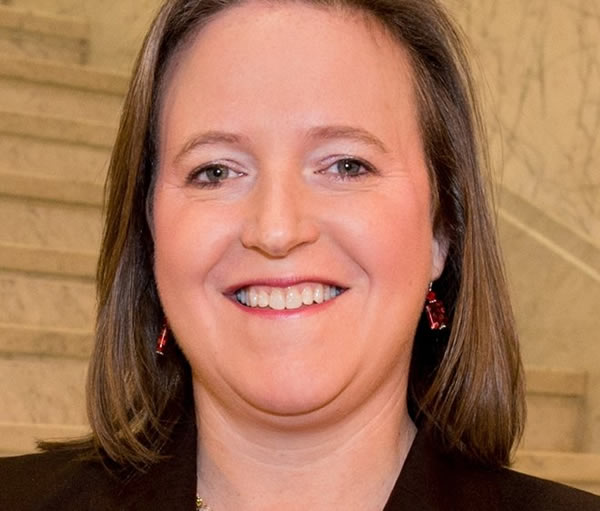
Representing Legislative District 14, Kaiser has served in the House of Delegates for 2002. Kaiser now serves on the House Health and Government Operations Committee.
Accruing seniority in the Democratic caucus over two decades, Kaiser has held influential positions during her time in office including as chair of the House Ways and Means Committee. She held the position beginning in 2017 until stepping down from the position in 2021.
Kaiser has been a consistent proponent of LGBTQ rights during her time in office, vocally opposing attempts in Maryland enact Florida-type “Don’t Say Gay” legislation that would limit discussion around LGBTQ issues in schools.
In announcing her decision to run for re-election, Kaiser pointed to her history of bipartisan work and her desire for bringing a “thoughtful, pragmatic approach” to legislating on behalf of constituents.
“I will never stop finding ways to be the voice of reason when issues get heated and when calm, steady leadership is needed,” Kaiser wrote on Facebook. “Now that I am a parent, I am ever more aware of the enormous impact our government can have on our lives. I’d like to continue this work not only on behalf of my own daughter and family — but yours too.”
Ashanti Martinez
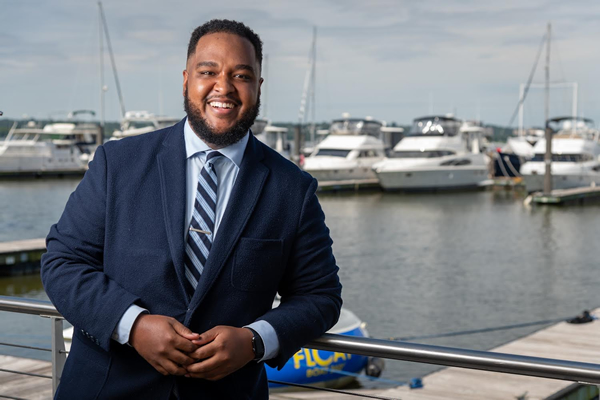
Martinez is running to represent Legislative District 22 — northern Prince George’s County — in the House of Delegates. Currently, Martinez is an advocacy specialist at Casa, an immigrant advocacy nonprofit, and he hopes to bring representation for the LGBTQ community, support for women’s reproductive rights and focus on building a social safety net to the General Assembly.
“I’m in this race because of COVID-19 — watching the inequities in our community only widen and seeing how when you fall in Maryland, you fail — there’s no safety net to catch you when you’re in crisis,” Martinez said. “I thought we needed someone in Annapolis who understands the issues that are facing working families and will be unapologetic about championing solutions for them.”
Martinez is also focused on supporting women’s reproductive rights on a state level, since the Democratic incumbent, Anne Healy, is anti-choice.
“With Roe overturned, we know that state legislators are going to be the decision makers, when it comes to protecting choice,” Martinez said.
Joseph Vogel
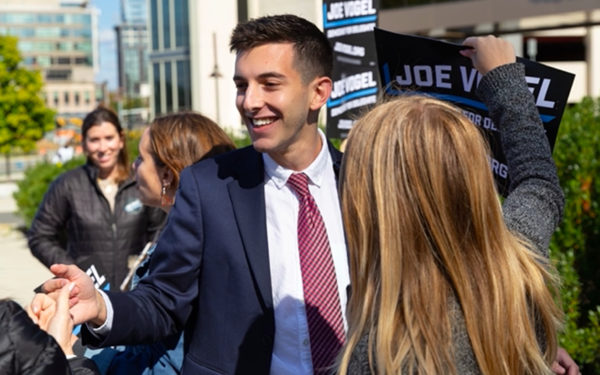
Vogel is running to represent Legislative District 17 in the House of Delegates, the same district his family settled in when they immigrated to the U.S. from Uruguay when Vogel was 3 years old. Vogel has worked to support progressive candidates and causes throughout Maryland and is an advocate for LGBTQ rights, reproductive rights, gun violence prevention and increased education funding.
In an email statement sent to the Blade, Vogel explained why he decided to run for office.
“As a gay person, I have a unique understanding of what it is like to have elected officials debating and determining your rights,” Vogel said. “At a time when LGBTQ+ people and their rights are under attack across the country, we need to elect LGBTQ+ leaders who will stand up for our community and all those whose rights are threatened. As delegate, I’ll work to make Maryland more just and inclusive.”
Sen. Mary Washington (D-Baltimore City)
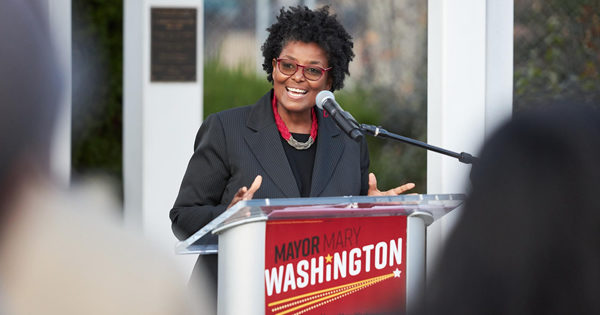
Representing parts of inner-city Baltimore, Washington has served as a state senator for Legislative District 43 since 2018.
Washington served as a member of the House of Delegates from 2010 until being elected to the Maryland Senate. There, she served on the House Appropriations Committee and the House Ways and Means Committee as the state’s first openly LGBTQ African American elected official.
During her time in office, Washington has advocated for the LGBTQ community while also focusing much legislative effort around education funding and reform and community development.
In an endorsement message for House of Delegates candidate Logan Endow, Washington took to Twitter to explain how she and her colleagues when running for and representing their constituents.
“I believe our representatives should be up to today’s challenges, willing to grow, and lean into the work,” Washington wrote. “They should be Baltimore through and through, while also bringing national and global experiences that will enable them to be a strong, respected advocated and policy maker.”
Maryland
Maryland’s oldest rural gay bar — and one of the last — is a log cabin in the woods
The Lodge is a Boonsboro watering hole resembling a log cabin
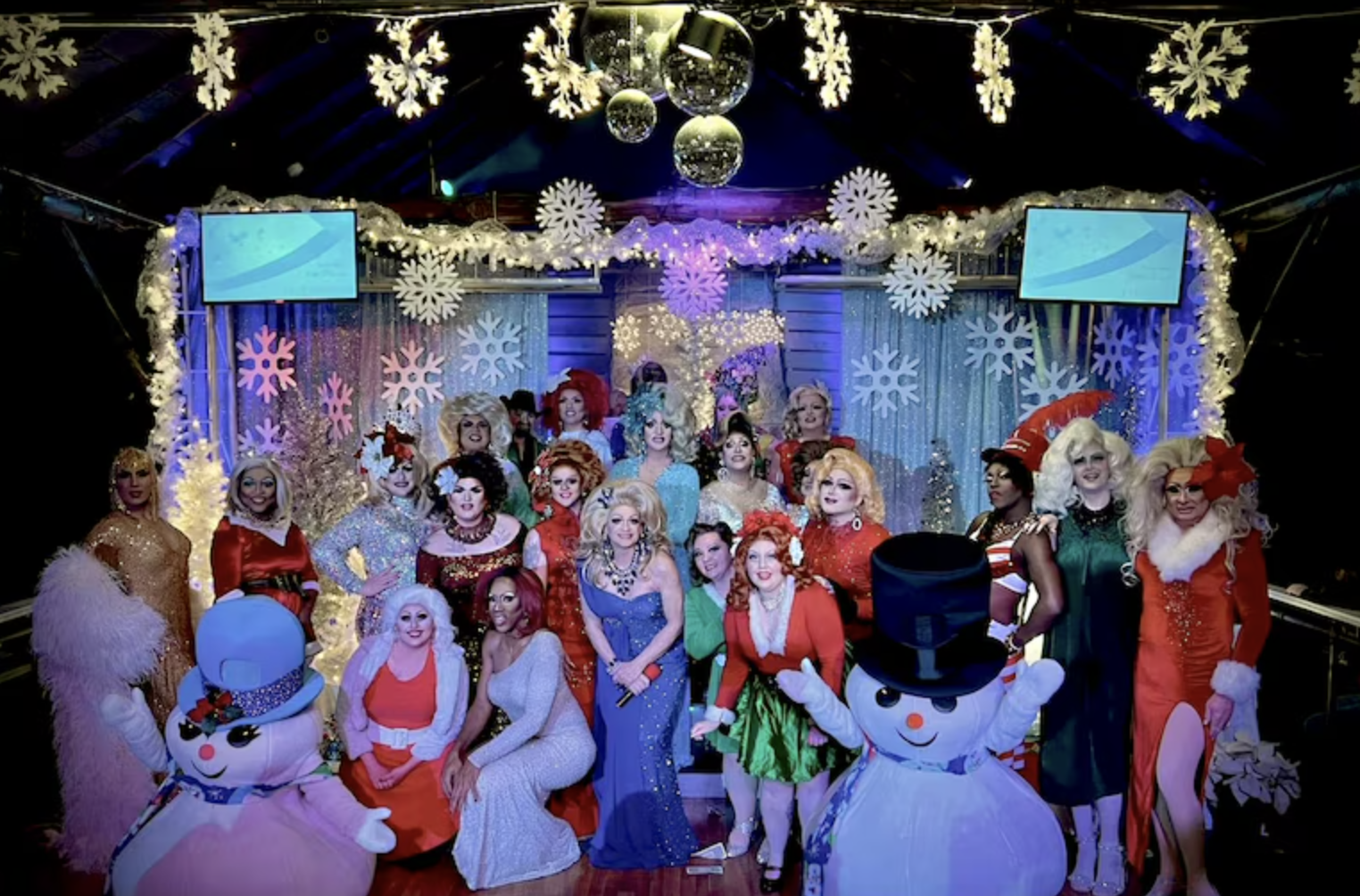
By SAPNA BANSIL | In the woods of a conservative Western Maryland town of fewer than 4,000 people is an unlikely landmark of state LGBTQ history.
The Lodge, a Boonsboro watering hole that resembles a log cabin, is Maryland’s oldest rural gay bar — one of a few remaining in the country, according to historians.
For about four decades, the Washington County venue has offered safety, escape and community to queer people far from large, liberal cities. Starting Friday night, The Lodge will close out Pride month with one of its biggest parties of the year: a weekend of dancing, drinking and drag in celebration of Frederick Pride, held about 20 miles away in the area’s largest city.
The rest of this article the Baltimore Banner published on June 27 can be read on its website.
Maryland
LGBTQ suicide prevention hotline option is going away. Here’s where else to go in Md.
Changes will take effect July 17

By ANNA RUBENSTEIN | The national suicide prevention hotline will no longer offer specialized support to LGBTQ people, starting July 17, the Trump administration announced last week.
Dialing the hotline at 988 will still be available for crisis support. But callers will no longer be able to reach specific LGBTQ services by pressing Option 3. The change worries advocates because their data shows the LGBTQ community has a disproportionally high suicide rate.
Even after the option ends, here’s how to receive tailored support if you’re in Maryland.
The rest of this article can be found on the Baltimore Banner’s website.
Maryland
Silver Spring holds annual Pride In The Plaza
‘Today means inclusion. It means to build resilience’

Silver Spring’s annual Pride in the Plaza event took place on Sunday to celebrate the LGBTQ community and emphasize inclusion and resilience.
“Today means inclusion. It means to build resilience, love,” Robyn Woods, program and outreach director for Live In Your Truth, which organized the event, said. “I mean, just being surrounded by the community and so many great entrepreneurs, business owners, and just being a part of this whole rainbow coalition that we call the LGBTQIA to be about.”
With the event being her first time organizing for Live In Your Truth, Woods said she felt emotional to see the support and love at the event.
“Some people (are) bringing out their children, their babies, their grandparents,” Woods said. “It’s a lot more allies here than anything else. That type of support to me means so much more than just support from my community; just outside support, inside support, so much support around it, so much love. Everyone’s smiling outside, helping each other.”
Attendees of the event were able to head over to the Family Fun Zone, an air-conditioned Pride Cool Down Lounge, or watch live drag performances in the main stage area.
Along with entertainment and a shaved-ice stand, rows of information tables stood along the plaza, including FreeState Justice, the Washington Spirit, Trans Maryland, Moco Pride Center, and the Heartwood Program, an organization that offers support, therapy, education, and resources to the LGBTQ community.
“I want people to know about our services, and I love what we have to offer,” Jessica Simon, psychotherapist for Heartwood Program’s Gender Wellness Clinic, said. “I (also) want to be part of a celebration with the community, and so it feels good to be here with other people who have something they want to give to the community.”
She added that within today’s political climate, to which she called an “antidote to shame,” it’s important to be celebrating Pride.
“There’s a lot of demonization of LGBTQI people,” Siena Iacuvazzi, facilitator for Maryland Trans Unity, said. “(Pride) is part of the healing process.”
Iacuvazzi said she was taught to be ashamed of who she was growing up, but being a part of a community helped her flourish in the future.
“I was taught how to hate myself. I was taught that I was an abomination to God,” she said. “But being a community is like understanding that there are people who have experienced the same thing, and they’re flourishing. They’re flourishing because they’re willing to stand up for themselves as human beings and discover themselves and understand what’s true for themselves.”
She added that Pride allows for a mutual understanding to take place.
“It’s more of a sense of belonging … and just taking that home and understanding you’re not alone,” Iacuvazzi said. “We’re each taking our own journey — we’re not putting that on each other. It’s just walking away with a sense of belonging and humanity.”
Similar to Iacuvazzi, Woods said she hopes attendees’ biggest takeaways would be family, fun, resilience, and pride.
“Being proud of yourself, being happy for who you are, and representation and how much it matters,” she continued. “And I think all these young people that are walking around here get to see versions of themselves, but older. They get to see so many different lesbian, gay, bisexual, pansexual people that are successful, that are showing love, that care, and it’s not how we’re portrayed in the media. It’s lovely to see it out here. (It’s) like we’re one big old, happy family.”

